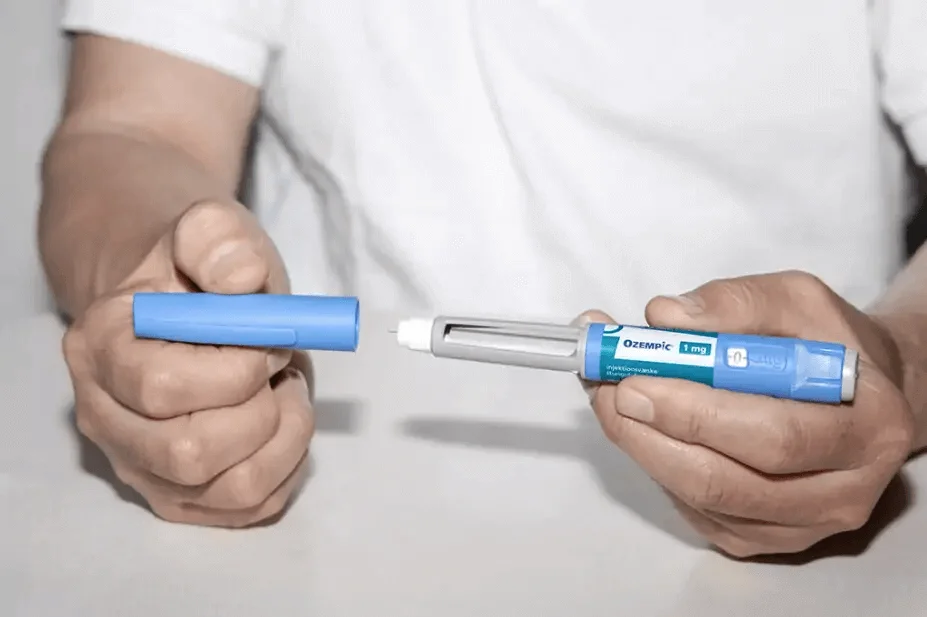Key Takeaways
-
Liposuction can cause lasting changes in gut health, including shifts in gut microbiome diversity and possible changes in gut motility.
-
Hormonal fluctuations and bile acid metabolism shifts post-surgery can impact digestion, appetite, and nutrient absorption.
-
Inflammatory processes and nerve interference associated with the surgery can impact digestion, so recuperation methods and lifestyle habits are critical.
-
For those with existing metabolic or gastrointestinal issues, it’s important to discuss with medical providers to evaluate risks and customize recovery strategy.
-
A balanced diet, hydration and incorporating regular exercise can aid in digestion after liposuction.
-
Continued professional oversight and practical expectations go a long way toward safe, long-term health benefits post-procedure.
Liposuction itself won’t directly affect your digestion in the long term, for the majority of individuals. The procedure eliminates fat cells from specific locations, but it doesn’t impact the body’s digestive process.
Some individuals will experience minor, temporary shifts in fuel intake as a result of convalescing, yet these dissipate. Below, we discuss what science and expert opinion can tell us about potential connections between liposuction and digestion.
The Digestive Aftermath
Liposuction, although primarily a body contouring procedure, can leave enduring imprints on gut physiology and digestion. These alterations might not be apparent immediately but can manifest over time in the way the body processes nutrients, maintains gut flora, and even regulates hunger or satiety hormones.
1. Gut Microbiome Shifts
Gut microbiota—trillions of minuscule organisms lining the intestines—assist in digesting food, combat pathogens, and produce vitamins and hormones. Following liposuction, research showed the combination of these microbes can shift. Others may experience a decrease in beneficial bacteria, such as Lactobacillus, along with an increase in less beneficial bacteria, disrupting the gut’s equilibrium.
This transition may cause issues such as constipation, weight fluctuations or blood sugar complications. Dysbiosis, or an unhealthy gut bacteria mix, can also reduce these organisms’ production of short-chain fatty acids (SCFAs) — which feed the gut lining and regulate inflammation. Alterations in SCFA levels can also influence energy metabolism, which may cause difficulties for certain individuals in maintaining weight loss post-operation.
2. Altered Gut Motility
Gut motility, the natural flow of food through the intestines, can slow down following liposuction. Others experience increased bloating, gas or constipation in the weeks post surgery. Due to its effect on gut motility, which if slowed down makes it more difficult for the body to extract nutrients from food.
Doctors commonly advise consuming foods that are easy on the stomach, such as Greek yogurt, lean proteins, and cooked vegetables. Adequate hydration—around two liters daily—helps keep things churning. Others discover that incorporating fermented foods like kimchi or sauerkraut can alleviate symptoms and restore equilibrium to gut function.
3. Hormonal Imbalances
Fat removal via liposuction can upend hormone levels, particularly ones associated with hunger and digestion. Insulin and leptin, both essential for satiety and blood sugar regulation, can fluctuate post surgery. When these hormones are imbalanced, it can be more difficult to control hunger or maintain a healthy weight.
Regular hormone monitoring can aid in identifying imbalances early and inform dietary adjustments to alleviate symptoms.
4. Bile Acid Metabolism
Liposuction might alter the body’s production and utilization of bile acids, which aid in fat digestion. If bile acid flow diminishes, the gut won’t absorb fats effectively, resulting in either loose stools or poor absorption of fat-soluble vitamins such as D or E. Eating more frequent, smaller meals and incorporating fiber-rich foods, like quinoa or berries, can help sustain healthy bile acid cycles.
Diet tweaks, such as incorporating small amounts of healthy fats, can assist as well.
5. Nutrient Absorption Changes
Others find it more difficult to assimilate nutrients post-liposuction, particularly if gut motility or bile flow is off. Iron, B12, calcium are often impacted. As does a balanced diet of lean meats, leafy greens, and fermented foods.
Being mindful of things such as fatigue or fragile nails can alert you to less than optimal absorption.
The Underlying Mechanisms
Liposuction alters adipose storage and metabolism long after the procedure. This can influence digestion and metabolism in multiple ways, from changes in fat distribution to the way the body processes inflammation and nerve impulses.
Fat Redistribution
Liposuction eliminates subcutaneous fat, particularly in the abdomen area, which causes the body to develop novel storage patterns for residual fat. For instance, research observed as much as a 44% reduction in subcutaneous abdominal fat in individuals exhibiting normal glucose tolerance and 28% in diabetic patients. The mean aspirate volume was approximately 3540 ml, or roughly 2.7 kg of fat.
Following large-volume liposuction, many patients maintain the weight loss for as long as 4 years — something that’s rare after weight loss through dieting.
-
Visceral fat is not eliminated by lipo and in fact can actually grow.
-
Visceral fat is associated with more dangerous metabolic conditions.
-
More visceral fat may damage gut health by increasing inflammation.
-
Organ fat can throw off microbiome.
-
Keeping body fat low helps gut health after liposuction.
This change in fat storage is important because visceral fat—fat stored deep inside the belly surrounding organs—is linked to increased inflammation and poorer metabolic outcomes. After lipo, you need to maintain a healthy body composition with lifestyle to prevent an increase in visceral fat, which can silently damage digestion and the gut.
Inflammatory Response
Liposuction is surgery, so the body responds with inflammation as part of a normal healing process. This inflammation is generally temporary, although it can be prolonged in some instances, impacting intestinal well-being.
For example, we know that markers such as leptin and TNF-α decrease post-liposuction, which is beneficial as elevated levels can lead to chronic inflammation, and adiponectin increases, thus reducing overall inflammation.
If it continues, inflammation can erode the gut lining, alter gut microbes, and inhibit digestion. Keeping inflammation at bay is the answer. Consuming foods high in anti-inflammatory compounds—think berries, leafy greens, and fatty fish—can assist the body in recovery and safeguard gut health. Daily movement and quality sleep contribute to keeping inflammation low post-surgery.
Nerve Disruption
During liposuction, nerves in the fat can get agitated, which may impact gut motility or digestive signaling. If nerves are injured, the gut can become sluggish, causing symptoms such as bloating or constipation.
|
Nerve Disruption |
Gut Motility Effect |
Symptom |
|---|---|---|
|
Mild |
Slightly slowed |
Mild bloating |
|
Moderate |
Noticeable reduction |
Constipation, cramping |
|
Severe |
Marked motility loss |
Severe pain, gut stasis |
Symptoms of nerve issues post-liposuction are persistent constipation, abdominal pain or fullness. To aid nerve health, a balanced diet rich in B vitamins, gentle movement, and avoiding fatty, low-nutrient foods is beneficial during recovery.
Identifying Risk Factors
Digestive long-term outcomes after liposuction vary based on a combination of patient history, surgical technique, and the treated site. Recognizing these risk factors directs safer decisions and reduces the risk of issues.
Pre-existing Conditions
Obesity and metabolic conditions such as diabetes alter the body’s healing after liposuction. These conditions put people at higher risk for DVT and slow convalescence, which can impact gut health.
DVT risk increases with genetic blood clotting issues, continuous smoking, advanced age, or extended operations. Gut issues like irritable bowel syndrome or previous GI surgery compound healing, too. Following liposuction, these patients may experience altered bowel habits or bloating.
Chronic oedema, associated with hypoalbuminaemia or nephropathy, can increase susceptibility to cellulitis and impede wound healing. Both can exacerbate digestive symptoms.
Patients over 60, with a personal history of GI malignancy, immunosuppression or alcohol abuse were at increased risk of developing a severe infection such as necrotising fasciitis post surgery.
Smoking and oral contraceptives should be ceased at least two weeks prior to surgery to reduce risk. Pre-surgery checks, such as for blood sugar and kidney function, provide a more specific snapshot of gut health and surgical preparedness.
Liposuction Technique
Not all liposuctions are alike. Others use bigger cannulae, which can extract fat quickly but pose higher risk of trauma.
Microcannulae, measuring up to 3 mm in diameter, operate in limited spaces and reduce the likelihood of over-correction or damage to the tissue adjacent to the bowel. Tumescent liposuction—where high volumes of diluted anesthetic are injected—may minimize bleeding and infection, decreasing the likelihood of future gut issues.
The surgeon’s skill is critical. A skilled team will steer clear of excessive or superficial liposuction, which leads to adhesions and scar tissue that impact the gastrointestinal system.
Selecting methods most appropriate to the patient and field minimizes the risk of intestinal distress.
Treatment Area
It counts where fat is taken off. Abdominal treatment can affect the digestive organs beneath more than other sites, as the gut lies in proximity to the fat.
Abdominal liposuction can induce alterations in gut motility or mild gastritis with the slow healing or formation of scar tissue. Complications are more common if excessive fat is removed or if the patient has lax skin which pushes on the belly and gut.
Patients with pre-existing digestive issues need to candidly discuss safest dosage areas with their provider. Less sensitive treatment areas might be safer for people with GI risk.
For instance, targeting the thighs or arms can sidestep additional gut strain. Each zone carries its own dangers and ought to be tailored to the individual patient’s health background and worries.
Beyond The Scalpel
Liposuction is more than just a beauty solution. It can alter everything about the body, from how the metabolism operates to how digestion feels on any given day. These effects extend well beyond the clinic, reaching into numerous aspects of lifelong health.
Metabolic Recalibration
Liposuction may instead trigger a metabolic reset. When significant fat is removed, the body can occasionally go into hormonal flux. This switch can assist your body in using insulin more effectively, a crucial component in maintaining balanced blood sugar.
Research reveals that some individuals experience enhanced insulin sensitivity post-surgery, but this is not universal. Maintaining it off after liposuction is about more than just fat loss. The body’s metabolism can slow, setting you up for rebound weight gain.
That’s why new habits matter so much—daily walks, balanced meals, and lots of water can go a long way in keeping metabolism in check. Fiber-rich diets count. Fiber increases SCFAs, which support gut health and can reduce caloric absorption from food.
Psychological Impact
Most folks are just more comfortable in their own skin after lipo. A new look can bring a boost in self-esteem and help people feel more in control of their health. Every now and then the change isn’t just skin deep.
Others begin to obsess over imperfections, a condition known as body dysmorphia. Support in recovery is key. Straightforward conversations with care teams or mental health professionals can assist in establishing achievable objectives and maintain a positive self-image.
Let everyone understand that liposuction may help contour the physique, but it doesn’t correct every concern or sentiment about body image.
Gut Microbiome and Digestive Health
We’ve got trillions of bacteria and microbes in our guts. Liposuction, after all, like any surgery, can disrupt this balance. Stress, anesthesia and medications (antibiotics, opioids and PPIs) can all alter which bugs flourish.
Occasionally, folks experience changes to digestion or gut comfort in the post-operative weeks. For most gut microbiomes, there’s a bounce-back within a month. Fiber-rich foods and balanced bile acids encourage beneficial bacteria to flourish.
Observing shifts—just as one would note how food ‘feels’—can help inform decisions that foster gut wellness for the long term.
Ongoing Care
Healing keeps going after the scars fade. Good habits matter most. Follow progress, consult with care teams and tune.
Stay patient and keep goals real.
Proactive Gut Care
Post-lipo digestion for the long haul is dependent on how well you care for your gut in the months and years after surgery. As fat distribution changes, the way your gut works might change too, so being proactive about gut care is crucial for keeping things running smoothly. By targeting food, lifestyle and periodic conversations with your doctor, you can rebuild and maintain a healthy gut microbiome.
Nutritional Strategy
Diet definitely influences gut health, particularly after surgery. The good stuff feeds the good gut bugs and balances bile acids and SCFAs. These factors combine to maintain digestive health robust and stable.
Fiber-packed foods are a no-brainer. Foods such as lentils, oats, beans and whole grains will help increase SCFAs, feeding your gut and the rest of your body. Fermented foods like yogurt, kimchi, and sauerkraut promote healthy gut flora which will help your gut heal after surgery. Hydration is key as well. Water keeps digestion flowing and helps maintain balance in the gut.
For most individuals, approximately 2 liters per day is a good goal, but requirements differ.
-
Consume a minimum of 25–30 grams of fiber daily from a variety of vegetables, fruits, legumes and whole grains.
-
Include fermented foods, such as plain yogurt, kefir, kimchi, or miso, several times per week.
-
Cut back on processed foods and sugar so you’re not feeding the harmful bacteria.
-
Drink sufficient water every day for lubricating the digestion process and transporting nutrients.
Lifestyle Integration
Being active aids digestion as well as general health. Even regular movement, like walking, cycling or yoga, can enhance insulin sensitivity 30% and promote gut ‘muscle’ function. Even gentle exercise benefits the gut by promoting faster healing and healthy microbes.

Stress can derail your gut. Taking care of stress through mindfulness, deep breathing, or hobbies can help keep the gut in check. Easy behaviors such as eating at consistent times, sleeping adequately and developing routines around movement and meals assist the gut to remain on course.
Do short walks following meals and don’t overeat at bedtime to encourage good digestion throughout the years.
Professional Monitoring
Regular care from a provider is key for monitoring progress and detecting issues early. These regular follow-ups catch shifts in digestion and direct the appropriate actions to restore it.
Checklist for gut health monitoring:
-
Bowel regularity and consistency
-
Signs of bloating or discomfort
-
Nutrient absorption (energy levels, skin, hair)
-
Weight stability
-
Blood sugar levels
With your provider, establish a follow up plan. This might translate into appointments a few times a year initially, then more and more infrequently as things settle down. Document symptoms and shifts to bring to each visit.
A New Perspective
Liposuction may be the new tummy tuck, but it’s interesting to consider what it does for your long-term health, particularly your digestion. When individuals observe transformations in their physique post-liposuction, it’s not solely about external appearance. Research indicates that they feel more confident and experience fewer symptoms of body image disorders, such as body dysmorphic disorder, months post-procedure.
This shift can help make it easier to persist with healthier behaviors, such as eating well — an important factor for gut health and digestion. Digestion is intricately connected to how the body deals with fat, hormones, and sugar. Liposuction may alter the way the body stores fat and reacts to insulin.
Some research demonstrates that fasting plasma insulin decreases post-liposuction. Insulin resistance plummets as well as weight and fat mass. These shifts can push the body back toward metabolic wellness. When that occurs, digestion can receive a lift, as reduced fat and improved hormone regulation could indicate fewer issues such as bloating or blood sugar fluctuations.
It’s not merely weight loss. Even a modest loss — say five to ten percent of your body weight — can have a significant impact. This drop can reduce insulin resistance and soothe inflammation. Both of which are great news for digestion. Hormones such as leptin — which helps regulate food intake — fall after liposuction.
In just the first three post-surgical months, so much as a 30% leptin decrease can be observed, indicating improved lipolysis and blood lipid profile. It’s not totally automatic. It takes continuous tending to maintain these gains. Individuals who maintain these habits—such as increasing fiber intake, staying hydrated, and exercising—are more prone to experience ongoing benefits.
Liposuction may jump start some of these changes, but the long term victories are in the daily decisions. Viewing an improved body shape in the mirror assists in maintaining motivation, and some experience improved results on body surveys as the weeks go by. To consider liposuction within a larger health plan is crucial.
It’s not a permanent solution, it’s an opportunity to begin again with new routines. The differences in body fat, hormones and self-image can assist individuals sustain a balanced lifestyle. That’s the pathway to real, sustainable digestive and overall health change.
Conclusion
Liposuction sculpts more than appearance. It can have a long-term impact, and the gut might just experience some of it. Others experience stomach pain or bloating. Some experience new eating patterns or minor changes in intestinal tempo. These shifts can be tied to changes in fat stores or stress post-surgery. Good eats and wise treatment assist to keep the stomach firm. Friends and family and health guides, too, count. Monitoring gut signals aids in catching problems early. To maximize any treatment, query your physician with clarity, listen to your body, and follow new advice. For added guidance or assistance, contact a reliable healthcare professional.
Frequently Asked Questions
Does liposuction affect digestion in the long term?
Liposuction does typically have an impact on digestion. The surgery scoops fat from beneath the skin and doesn’t touch the digestive organs. Almost nobody gets altered digestion after liposuction.
Can liposuction cause digestive problems later in life?
Digestive problems after liposuction Complications are more likely if you have underlying conditions or if the surgery is unsafe. Of course, always work with a qualified physician for secure results.
What are the risk factors for digestive changes after liposuction?
Risks involve bad surgical practice, high volume fat extraction, or prior digestive issues. Choosing an experienced surgeon and sharing your health history reduces your risk.
How can I support my digestive system after liposuction?
Eat well, stay hydrated and heed your doctor. Some light exercise and probiotics can do the trick. Frequent checkups keep your gut health in line.
Is there a link between liposuction and long-term gut health?
No established connection exists based on recent studies regarding liposuction long-term influence on digestion. It works on subcutaneous fat, not your digestive tract.
Should I worry about nutrient absorption after liposuction?
Liposuction doesn’t alter your digestion. You can return to normal eating once you recover unless your doctor recommends differently.
What else should I consider for overall health after liposuction?
Focus on a healthy lifestyle: eat nutritious foods, get regular physical activity, and manage stress. These habits facilitate not only recovery but long-term health.





